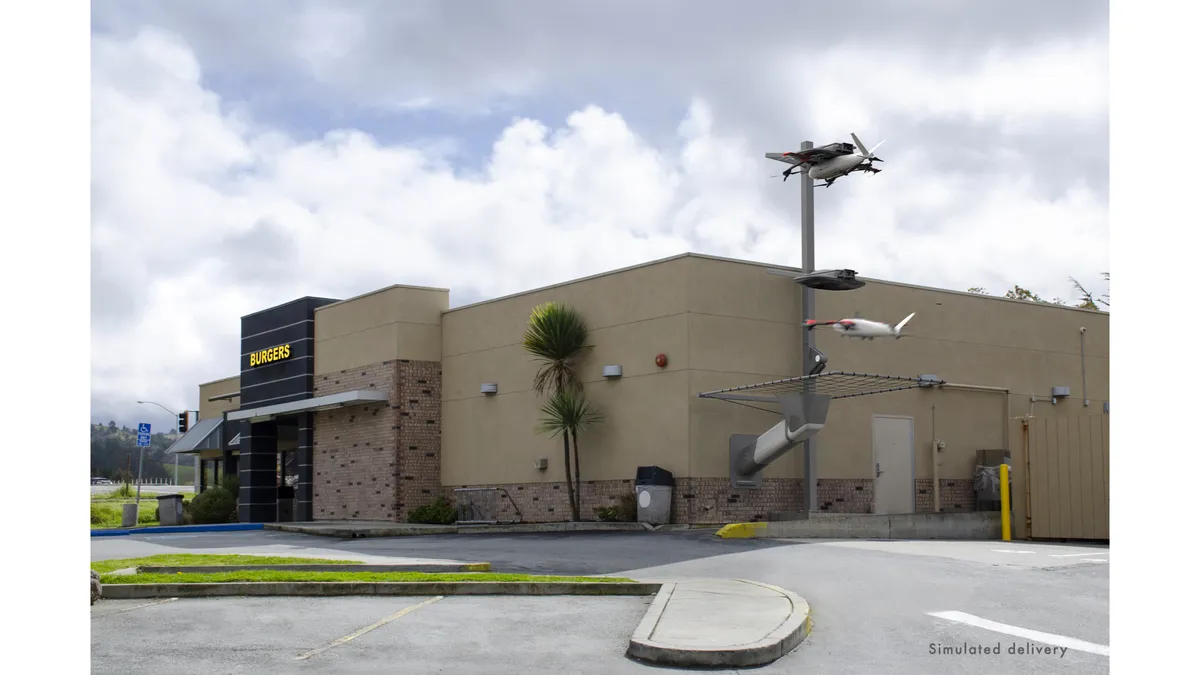Sweetgreen is partnering with Zipline, a drone delivery company, to eventually offer autonomous delivery to U.S. customers, according to a press release issued Wednesday. Customers will eventually be able to order Sweetgreen for delivery through Zipline’s marketplace.
Zipline also unveiled its second-generation drone, Platform 2, which will be the centerpiece of its home delivery operations. Zipline did not share any actual photographs or videos of the vehicle and its associated charging and loading dock, instead showcasing computer-generated videos.
Zipline claims its home delivery system will save energy compared to other forms of delivery, which could support Sweetgreen’s carbon neutrality goals. The company said its P2 drone can deliver seven times faster than traditional automobile delivery and can complete 10-mile deliveries in 10 minutes. It can carry six to eight pounds and is able to fly 24 miles between charging docks.
“Zipline’s sustainable technology and ability to reach customers quickly, with a great delivery experience, will help us give our customers what they want, when they want it,” Jonathan Neman, co-founder and CEO of Sweetgreen, said in the press release.
Zipline said it will initially conduct high-volume tests with about 100 P2 aircrafts to complete over 10,000 test flights, after which the first customer deployment will begin. Sweetgreen and Zipline have not shared a timeline for the commencement of home delivery, and Zipline did not clarify if any of the P2 drones were operating yet. Zipline claims its P1 drones have flown 40 million miles worth of commercial deliveries, and that it completed more deliveries in 2022 than all previous years combined.
Zipline gained Part 135 certification from the FAA last June, which allows long-range, on-demand commercial drone flights. Zipline’s competitor Flytrex, which also gained Part 135 certification in January, works with Charleys Philly Steaks, Brinker International, Jersey Mike’s, Taco Bell, Starbucks, Papa Johns and Wendy’s in North Carolina and Texas.
Zipline did not specify the sources of electricity needed to power its electric drones. In Utah and North Carolina, the two states where the FAA has granted Zipline Part 135 air carrier certification, 85% and 52% of electricity comes from fossil fuels, according to the U.S. Energy Information Administration.











